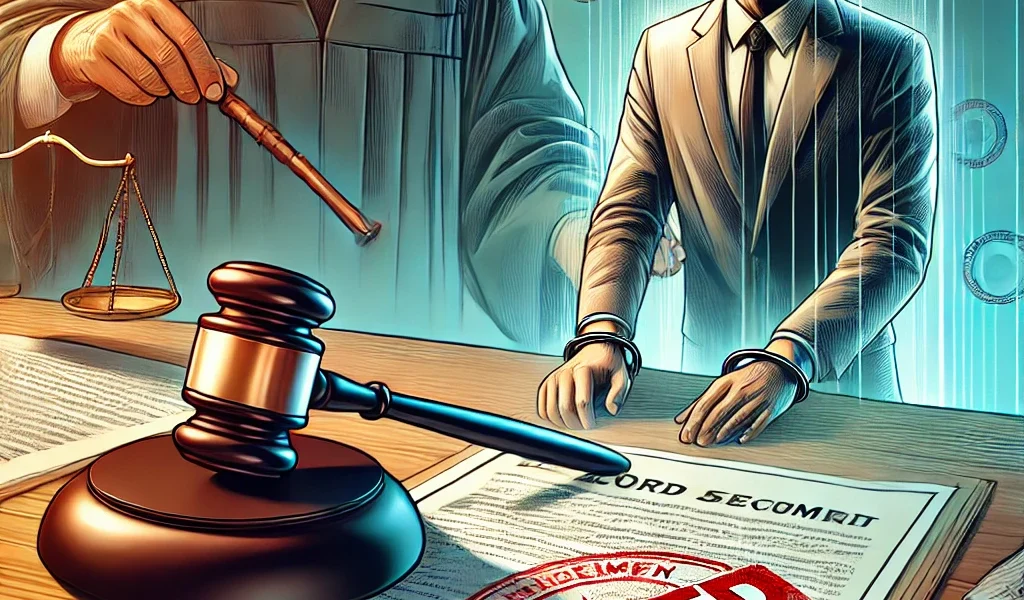Introduction
Having a criminal record can create barriers in various aspects of life, including employment, housing, and education. Fortunately, legal processes like expungement and record sealing allow individuals to clear or restrict access to their criminal records, providing a fresh start.
Understanding the differences between expungement and record sealing, the eligibility criteria, and the application process can help individuals make informed decisions about their legal options.
1. What is Expungement?
Definition
Expungement is a legal process that erases or destroys a criminal record, making it as if the crime never happened. Once a record is expunged, it is no longer visible in background checks or accessible by the public.
Effects of Expungement
- Criminal records are permanently erased.
- Individuals can legally deny the existence of the expunged record in most cases.
- Expunged records do not appear on standard background checks.
Eligibility for Expungement
The eligibility for expungement varies by state but generally depends on:
- The severity of the offense (misdemeanors vs. felonies).
- Whether the individual completed their sentence, including probation.
- The time elapsed since the conviction.
- Whether there are any additional criminal charges pending.
2. What is Record Sealing?
Definition
Record sealing is a legal process that restricts access to criminal records, making them invisible to most background checks. However, sealed records still exist and may be accessed by certain government agencies or through a court order.
Effects of Record Sealing
- The record remains in existence but is inaccessible to the public.
- Employers, landlords, and most institutions cannot see the sealed record.
- Certain authorities (e.g., law enforcement, courts) may still access sealed records if necessary.
Eligibility for Record Sealing
Record sealing eligibility requirements vary by jurisdiction but typically include:
- Completion of sentencing, probation, or community service.
- A waiting period without additional criminal offenses.
- The type of crime (violent felonies are often ineligible).
3. Key Differences Between Expungement and Record Sealing
| Feature | Expungement | Record Sealing |
|---|---|---|
| Record Visibility | Completely erased | Restricted from public view |
| Legal Status | Treated as if never happened | Still exists but hidden |
| Access by Authorities | No access | Limited access |
| Eligibility | Often stricter | More widely available |
4. Benefits of Expungement and Record Sealing
A. Employment Opportunities
Many employers conduct background checks before hiring. A cleared or sealed record can prevent a past conviction from affecting job prospects.
B. Housing and Rental Applications
Landlords often reject applicants with criminal records. Expungement or sealing increases chances of securing housing.
C. Professional Licensing
Certain professions require clean records for licensing (e.g., healthcare, law, education). Expungement may remove disqualifications.
D. Education and Financial Aid
Some educational institutions and scholarship programs deny applicants with criminal records. Clearing the record can improve eligibility.
E. Peace of Mind
Expungement and sealing allow individuals to move forward without the stigma of a criminal past.
5. The Expungement and Record Sealing Process
Step 1: Determine Eligibility
Consult a legal professional or review state laws to confirm whether your case qualifies for expungement or sealing.
Step 2: Obtain Court Documents
Gather necessary documents, including court records, case dispositions, and proof of sentence completion.
Step 3: File a Petition
Submit an application to the court requesting expungement or record sealing. This typically requires paying a fee and providing supporting documentation.
Step 4: Attend a Court Hearing (If Required)
Some cases require a court hearing where the judge will decide whether to approve the request.
Step 5: Court Decision
If approved, the court will issue an order to expunge or seal the record, notifying relevant agencies to update their records.
Step 6: Confirm Record Update
Check with background check agencies to ensure your record has been successfully expunged or sealed.
6. Common Misconceptions
A. Expungement and Sealing are Available for All Crimes
Not all offenses qualify. Serious felonies, sex crimes, and violent offenses may not be eligible.
B. A Sealed Record is the Same as an Expunged Record
Sealed records still exist and may be accessible by government agencies, while expunged records are erased.
C. The Process is Automatic
In most cases, individuals must file a petition; records do not get expunged or sealed automatically.
D. Expungement is Instantaneous
The process can take weeks or months, depending on court schedules and processing times.
7. When to Seek Legal Assistance
Navigating the expungement or sealing process can be complex. Consulting a criminal defense attorney ensures:
- Proper filing of paperwork.
- Better chances of approval.
- Understanding of legal rights and options.
Conclusion
Expungement and record sealing provide individuals with the opportunity to move forward from past mistakes. While both processes can significantly improve future prospects, understanding the differences, eligibility requirements, and application procedures is crucial.




